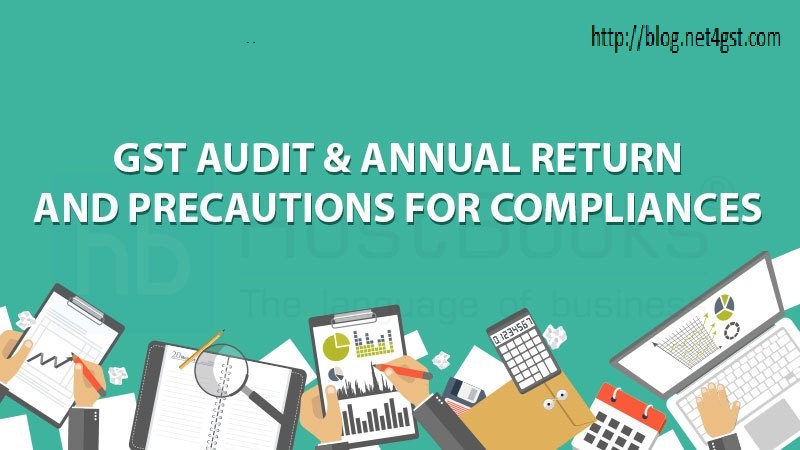
Forms for Annual return and GST Audit:
| Type of taxpayer | Form to be filed |
| Whether or not applicable to GST Audit | |
| A Regular taxpayer filing GSTR 1 and GSTR 3B | GSTR-9 |
| A Taxpayer under Composition Scheme | GSTR-9A |
| E-commerce operator | GSTR-9B |
| Applicable for GST Audit | |
| Taxpayers whose turnover exceeds Rs. 2 crores in FY | GSTR-9C |
Accounts to be to be reviewed by GST Auditor
Following are important accounts or records for review:
- Sales Register
- Stock Register
- Purchase Register and Expenses ledgers
- Input tax credit availed and utilized
- Output tax payable and paid
- E-way bills generated during the period under Audit, if in compliance with rules.
- Any documents that record communications from the GST department relating to the year.
Review of comments by GST Auditor:
The Auditor must report any tax liability pending for payment by the taxpayer, identified through the reconciliation exercise and observations made on GST audit. Taxpayers can settle taxes as recommended by the auditor in Form DRC-03.
Submission of GST Audit report & Annual return:
The finalized GSTR-9C can be certified by the same CA who conducted the GST audit or it can also be certified by any other CA who did not conduct the GST Audit for that particular GSTIN.
The following must be reported and certified by the GST Auditor or the certifier:
- Whether or not all the requisite accounts or records are maintained.
- Whether or not the Financial Statements are prepared as per the books of accounts maintained at the principal place of business or additional place of business of the taxpayer.
- Certify the accuracy of information in GSTR-9C.
- To list down the audit observations or reservations or comments, if any.
Documents to be furnished by the taxpayer:
- Audited financial statements (which is PAN-based)
- Annual return in form GSTR-9 (for every GSTIN)
- Certified reconciliation statement in Form GSTR-9C, reflecting reconciled values of supplies and tax amounts declared in GSTR-9 compared to audited financials in Part-A, along with the Audit report in Part-B.
Due dates for submission of GST Audit report:
GSTR-9 and GSTR-9C are due on or before 31st December* of the subsequent fiscal year.
Special Note: *GSTR-9 filing for businesses with turnover up to Rs 2 crore made optional for FY 2017-18 and FY 2018-19.
Penalty for not submitting GST Audit report:
There is no specific provision. Hence, it is subject to a general penalty of Rs.25,000.
Late Fees for not Filing Return on Time
If GST Returns are not filed within time, you will be liable to pay interest and a late fee.
Interest is 18% per annum. It has to be calculated by the taxpayer on the amount of outstanding tax to be paid. The time period will be from the next day of filing to the date of payment.
Late fees is Rs. 100 per day per Act. So it is 100 under CGST & 100 under SGST. Total will be Rs. 200/day. Maximum is Rs. 5,000. There is no late fee on IGST.